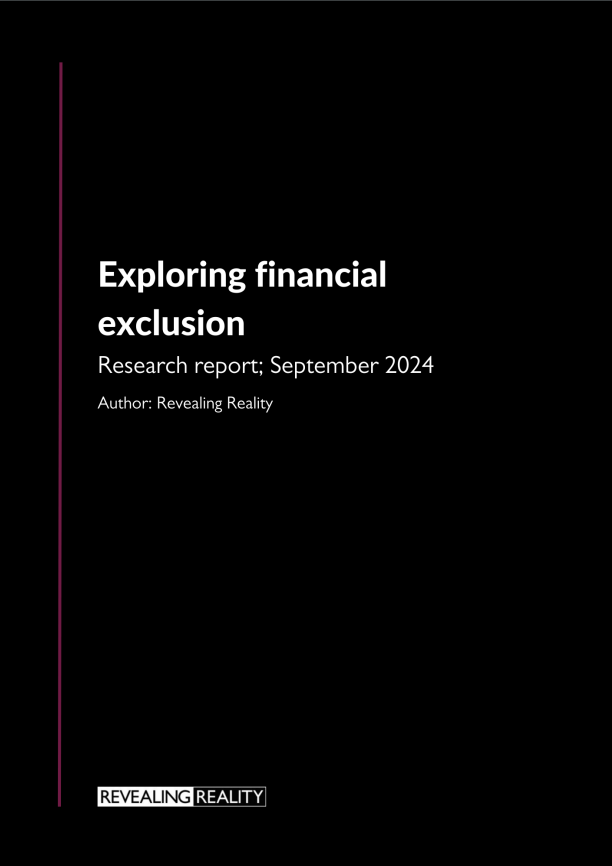Exclusion from financial services can leave people unable to make and receive payments, or deny them access to appropriate products that support financial resilience. Even with the most common of financial products, such as a bank account, many individuals still face exclusion.
As a regulator, the Financial Conduct Authority (FCA) must understand the different needs of consumers and how these can change depending on their circumstances.
We were commissioned by support the FCA’s understanding of the needs and challenges faced by groups previously identified as being at particular risk of financial exclusion.
These included those with experiences of the asylum-seeking process, homelessness and rough sleeping, the care sector and the criminal justice system. The cohorts that the FCA were interested in for this research seldom participate in mainstream research, so our approach needed to be carefully designed to ensure the right people were reached to achieve the FCA’s aims.
To do this, we took a place-based approach, building relationships with community support organisations and settings to engage with people who often have complex, overlapping experiences relevant to this research. Through the course of the project, the site visited included asylum hotels, drop-in centres, women’s centres, food banks, care leavers’ support centres and multiple homeless shelters.
There were a range of benefits to visiting people within their own environments:
- We were able to reach out to vulnerable people who wouldn’t normally participate in research
- The chaotic nature of some respondents’ lives means that no-shows to scheduled interviews were inevitable, so the flexibility of our site visit approach allowed greater opportunity to speak to interview people in a range of circumstances
- Observing respondents within their own environment enabled us to understand natural behaviours and additional context.
- Visiting these organisations allowed us to speak to staff, to directly see the help and services available.
- Respondents taking part in the research were also much more comfortable than they would have been in a traditional interview format
Many people in the interview sample were able to open basic bank accounts, but most received assistance. Support included sharing information on workarounds when people didn’t have ID or a fixed address, signposting to specific bank accounts or accounts being set up for people.
Some of the bigger challenges existed in being able to maintain accounts. Some of those interviewed struggled to use their accounts and relied on others for assistance, creating the potential for them to be financially exploited. Both this and other factors contributed to financial behaviour that sometimes conflicted with their accounts’ terms and conditions.
Our research findings have now been published by the FCA and will support their regulatory duties by offering insight into individual experiences of financial exclusion and the barriers faced by vulnerable consumers.

